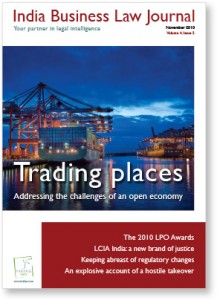Transparency International said in October that India’s public sector is perceived as less clean than that in 86 other countries
However, it also found that corruption levels were pretty much the same as in 21% of the world, including China, Thailand and Jamaica. Then along came three corruption scandals, each sleazier and potentially more explosive than the last, and suddenly being ranked 87th on a corruption perception index of 178 countries appeared palatable.
“There should be nowhere to hide for the corrupt or their money” urges Transparency International. But public bodies and governments rarely achieve transparency on their own. It takes the vigilance and persistence of citizens. Indeed, it was a collective of farmers and labourers, fighting to gain access to their wage records, who brought the issue of transparency to the forefront of the public and political agendas in India. The end result was the Right to Information (RTI) Act, 2005 – one of the biggest steps India has taken to empower its citizens.

While the right to information is paramount, providing it in a fragmentary and erratic fashion is more likely to baffle than enlighten. This has been the problem with how businesses and investors in India are notified of regulatory changes. As any in-house counsel with India-related responsibilities will attest, grappling with the plethora of press notes and circulars that emanate from government departments and regulators is challenging. But there may be light at the end of the tunnel. The first of this month’s Spotlight features (Circulars, notes and orders, page 19), reveals that steps are finally being taken to simplify systems. In a wave of consolidation, circulars and press notes from a number of regulators are being aggregated into master documents, greatly simplifying the compliance process.
Consolidation of a different kind is reshaping the legal process outsourcing (LPO) industry. In what is widely seen as a sign of the sector’s growing maturity, two LPOs with significant operations in India have been snapped up by foreign suitors: LawScribe by UnitedLex, a large LPO headquartered in Kansas, and Pangea3 by Thomson Reuters, a global provider of news and business information (News, page 8).
These acquisitions come at a time of growing acceptance of the LPO industry by prospective clients. Even law firms, which have long been critical of the practice, are warming to the idea. “One thing we’ve seen is a real change in terms of how law firms are viewing LPOs,” says Sanjay Kamlani, the co-CEO of Pangea3.
As LPOs embrace the new realities of their industry, India Business Law Journal is pleased to announce the winners of its 2010 Legal Process Outsourcing Awards (Intelligence report, page 29). For the second consecutive year, the coveted LPO of the Year Award goes to Pangea3, which won glowing endorsements from its clients and industry peers alike.
In contrast to the acquisitions of LawScribe and Pangea3, which were not acrimonious, this month’s What’s the deal? (Battle of wits, page 25) provides the anatomy of a takeover that most certainly was. The purchase of Israeli generics maker Taro by Mumbai-based Sun Pharmaceutical began as a friendly outbound acquisition but rapidly descended into a hostile takeover. Every twist and turn that took place between May 2007, when the deal was announced, and September this year, when the Supreme Court of Israel rejected the last challenge to the transaction, provides valuable lessons for future dealmakers.
The second of this month’s Spotlights (A new brand of justice, page 21) looks at the London Court of International Arbitration’s (LCIA) subsidiary in Delhi, which offers London-style arbitration with an Indian flavour. These are early days for the venture, which is likely to face tough competition from Singapore and Hong Kong arbitration centres, as well as from LCIA itself. However, its presence in the country underscores the growing demand for credible alternatives to India’s overcrowded court system as well as the shifting focus of international trade from West to East.
The latter is the subject of this month’s Cover story (Trading places, page 15). As India’s exports increase, the government must devise policies that address the changing nature of international trade. Is it up to this task? Not everyone is convinced it is.
While Anand Desai, a partner at DSK Legal, suggests that India’s increasing economic relevance has meant “India wants to have an increased say in multilateral frameworks”, Apisith John Sutham, a partner at Bangkok-based Apisith & Alliance, believes more needs to be done. “India’s policy to open up its huge markets needs to be implemented by concrete actions,” he says. Clearly the road ahead is littered with challenges.


























